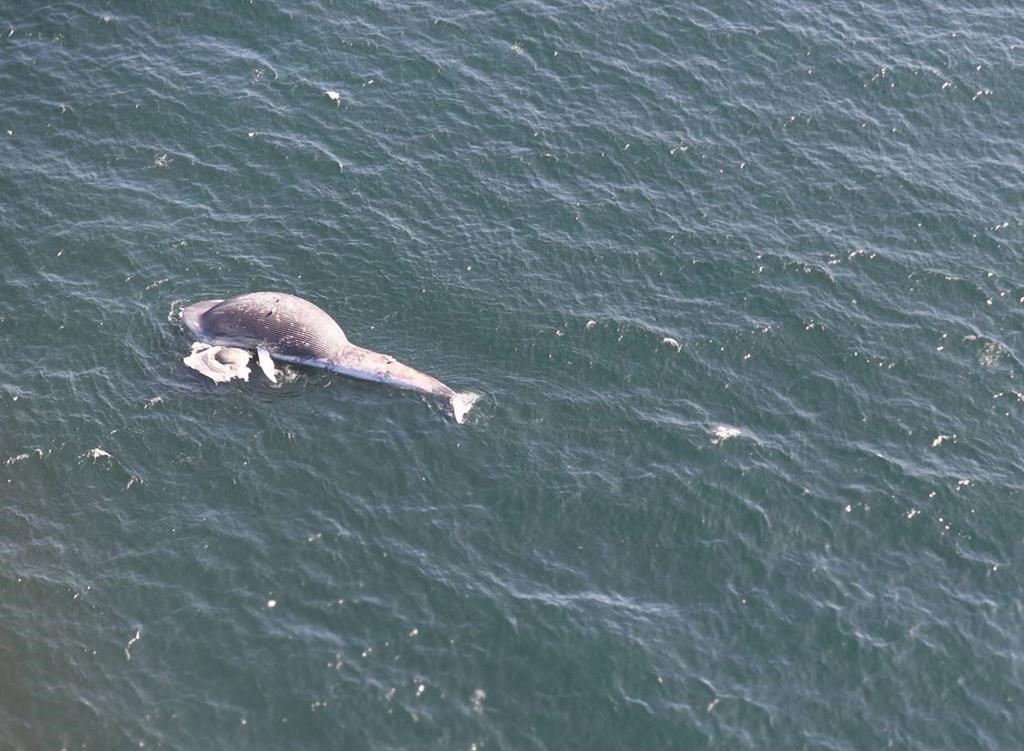HALIFAX – The federal Fisheries Department is confirming a second blue whale death last month in the Gulf of St. Lawrence and is again saying an examination of the cause will not be possible.

The blue whale carcass was reported to the department Sept. 7 by a cargo ship and confirmed by Transport Canada and Fisheries Department aircraft about 110 kilometres north of Gaspesie.
The department say it was able to identify the species from photos, but officials determined a necropsy wasn’t feasible due to the advanced state of decomposition.
READ MORE: Carcass of young, endangered blue whale found on Cape Breton beach
Spokesman Barre Campbell says in an email the animal’s large size and distance from shore also factored into the decision.
The department had earlier reported a dead juvenile blue whale found on Sept. 18 just northwest of Port Hood, N.S., in Cape Breton, saying a full necropsy wasn’t possible in that case either.
A spokesman said this was because the whale’s body was decomposed and in an inaccessible location, and there wasn’t a suitable vessel available to tow the whale when it was first discovered.

Get breaking National news
The most recent published federal estimate for the endangered species in the northwest Atlantic Ocean puts the population at about 250.
READ MORE: Slow response to right whale plight could have impact on Canadian fisheries
Marine biologist Richard Sears of the Mingan Island Cetacean Study said in an email it is too bad that necropsies couldn’t be performed, given the need to determine why the endangered whales are dying in the gulf.
The biologist, who has studied blue whales for 41 years, says the whales face risks from ship strikes and fishing gear entanglements.
In addition, there is evidence that underwater acoustic noise and toxic pollutants are harming the blue whale population.
He said in most instances only a full necropsy can definitively determine the cause of death.
Blue whales are the largest creatures on Earth and have a potential lifespan of 70 to 80 years. There has been a federal recovery plan for the whales off Canada’s east coast for more than 17 years.
READ MORE: DFO closes part of Bay of Fundy after 5 right whales spotted
However, Sears said he believes speed restrictions for vessels should be in place for shipping throughout the gulf, rather than in certain sectors.
Veterinarians and government scientists have examined endangered North Atlantic right whales found dead this summer, linking some deaths to ship strikes.
This report by The Canadian Press was first published Oct. 1, 2019.







Comments